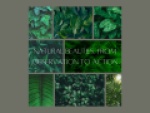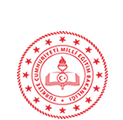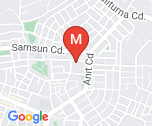

Natural Beauties, from observation to action
" Natural Beauties, from Observation to Action » is an international educational projet designed to increase environmental awareness and mutual understanding among students from diverse backgrounds. Students will be encouraged, not only to observe nature and focus on the natural beauties around them, but also to take action, in order to protect it. They will take two eco-challenges, collectively and individually. Moreover, by using many web 2.0 tools in the project, both students' IT skills and English language skills as a common language will be increased. As our students will have the opportunity to get to know different cultures, this project will raise awareness about muticulturalism and diversity. Finally, running from September 2025 to January 2026, this project aimed at being in line with the United Nations’ 2030 Agenda for Sustainable Development and the 2030 EU Climate Target Plan. It will lead to 5 final common projects (an e-Calendar about Netiquette ; a mosaic, an acrostic poem, an environment quiz game and an e-book, about our observations and actions).
 Information
Information
Members: 26 Membership: Türkiye(6), France(5), Greece(4), Italy(3), Ukraine(2), Spain(2), Poland(1), Bosnia and Herzegovina(1), Romania(1), Austria(1) Age range: 10 - 15 Subjects of teaching: Art Biology Citizenship Cross Curricular Drama Environmental Education Foreign Languages Informatics / ICT Language & Literature Natural Sciences Primary School Subjects Social Studies / Sociology Vocational subjects of teaching: Art Forestry Handicrafts Key competences: Citizenship Cultural awareness and expression Digital Literacy Maths and science Multilingual Personal, social and learning to learn
Aims
« Natural Beauties, from observation to action » is a project aimed at increasing students’ environmental awareness and being in line with the United Nations’ 2030 Agenda for Sustainable Development. Students will be encouraged to observe the Natural Beauties around them and act to protect our planet. They will develop partnership and solidarity within their class, their local community and with their European partners. They will act collectively and will be encouraged to come up with personal ideas and take action individually, as well (in their homes, their community…). Also, by using a variety of Web 2.0 tools in the project and communicating with their partners, both students' IT skills and English language skills as a common language will be increased. As our students will have the opportunity to get to know different cultures, this project will raise awareness about muticulturalism and diversity, and promote peace and mutual understanding. Teachers will be encouraged to embed this project into their Curriculum. For example, as an English as a Foreign Language teacher in France, I am planning on having three approches, embedding this project into the English curriculum, the « Socle Commun » and a multidisciplinary approach (working with Biology, Art teachers…). The diversity of learning objectives and expected skills are not confined to a single subject nor purely disciplinary. The learning path developed in the project provides a "map of values", essential for exercising citizenship at all levels while respecting common rules. The key competencies and skills developed in students throughout the project include: • Active and democratic citizenship skills, fostered through intercultural and environmental education; • Respect for differences and intercultural dialogue; • Awareness of rights and responsibilities, encouraging students to understand their role as engaged and responsible citizens (netiquette, environment,…).
Expected Results
5 FINAL Common projects : 1.An e-Calendar about Netiquette 2.A mosaic about nature and the Natural Beauties we can observe in our European areas 3.An acrostiche poem about nature and the actions we could do to protect it 4.An environment quiz game that we will play together during an online meeting 5.An e-book with our observations of Natural Beauties and our actions, and our whole project As it is my first time creating an eTwinning project from scratch, I know I have much to learn and I intend to humbly ask and add ideas from my co-founder and partner teachers.




